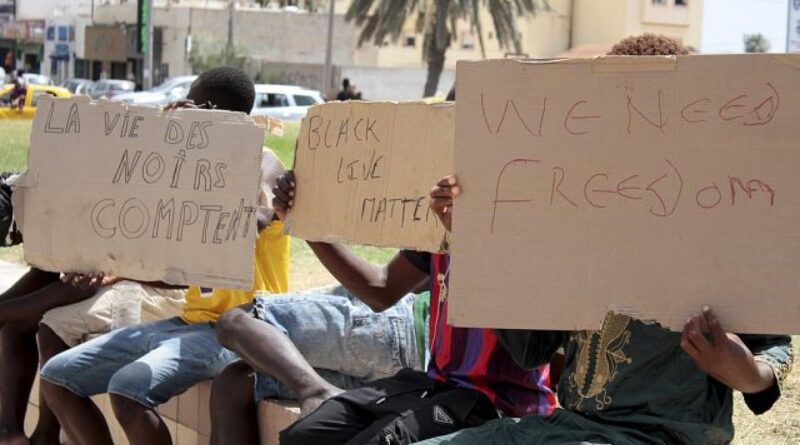Tunisian group accuses authorities of mass expulsions of migrants from sub-Saharan Africa
Migration activists are sounding the alarm this week about mass expulsions and arbitrary arrests in Tunisia, where authorities are seeing more migrants arrive for attempted Mediterranean crossings from the North African nation to Europe.
The Tunisian Forum for Economic and Social Rights on Monday accused the government of waging a campaign of repression against migrants at the expense of humanitarian concerns, “to satisfy European blackmail and ensure a steady stream of financial and logistical support.”
It said in a statement that witness accounts indicated the situation had become particularly dire around Tunisia’s borders with Libya and Algeria as well as around the country’s second most populous city, Sfax, a common stopover point for migrants aiming to cross the Mediterranean.
The nongovernmental organization said that migrants in Sfax, which is 117 miles (188 kilometers) from the Italian Island of Lampedusa, regularly experience arbitrary arrests and violence. Many have their property destroyed.
Such treatment hasn’t been limited to migrants who enter Tunisia without authorization and has extended to refugees, students, and workers, the group said.
It said it had received frequent reports of mass expulsions across the Algerian and Libyan borders. In Algeria, that has included migrants being deported into the desert regardless of weather conditions. In war-torn Libya, deportations often lead to migrants ending up in detention centers run by armed groups.
Tunisian officials have said small groups of migrants have been pushed back across the country’s desert borders but disputed reports of systemic abuse and expulsions.
The Tunisian Forum for Economic and Social Rights implored the government to end the deportations, provide migrants safe haven and update laws to allow those without papers to obtain some sort of legal status.
“Sovereignty is not achieved by intimidating vulnerable groups and resorting to outdated laws and discriminatory circulars, but rather by initiating national policies that guarantee dignity, rights and freedoms for all humans,” it said.
Tunisia faces increased scrutiny over how it deals with migrants. More than 97,000 people crossed the Mediterranean from Tunisia to Italy in 2023, according to UNHCR. Tunisian migration groups estimate there are between 20,000 and 50,000 sub-Saharan migrants in the country.
Tunisian authorities receive financial assistance from Europe to help police borders. The country brokered a $1 billion euro ($1.1 billion) aid agreement in July that included a pledge of 105 million euros ($110 million) earmarked for migration.
Despite the aid, President Kais Saied has insisted that Tunisia will not become Europe’s “border guard” or accept migrants that European politicians, including ascendant right-wing leaders, don’t want.
Saied last year faced allegations of racism after calling the presence of sub-Saharan African migrants part of a “criminal plan to change the demographic makeup of the country.”

